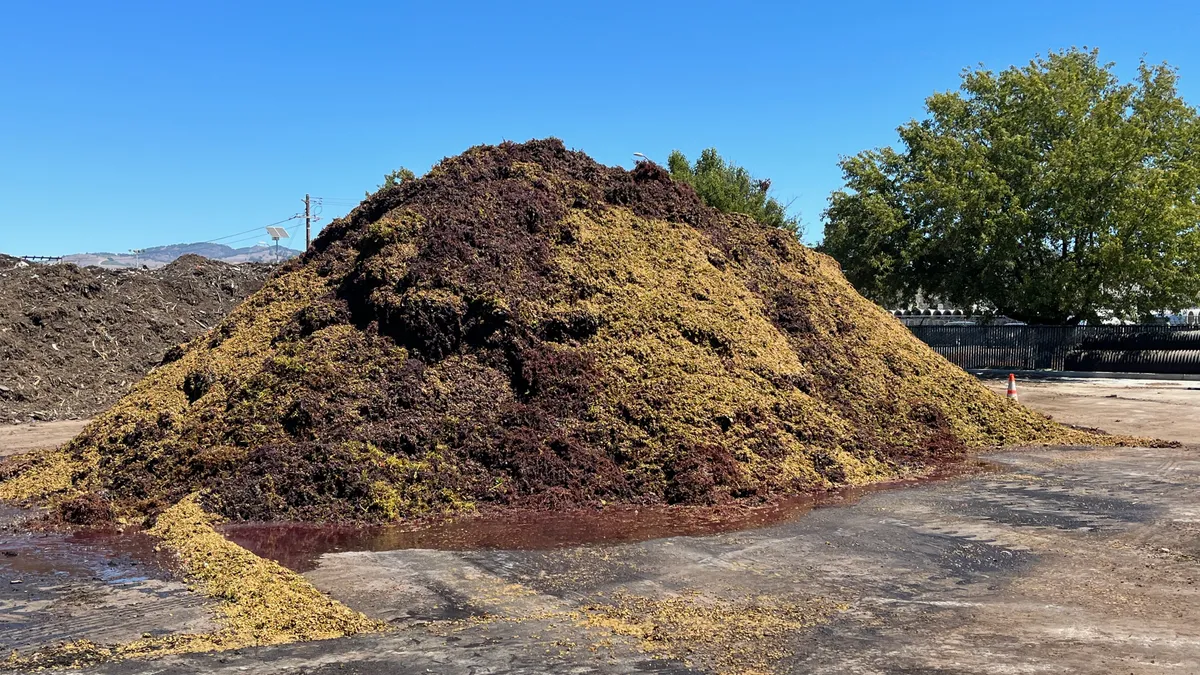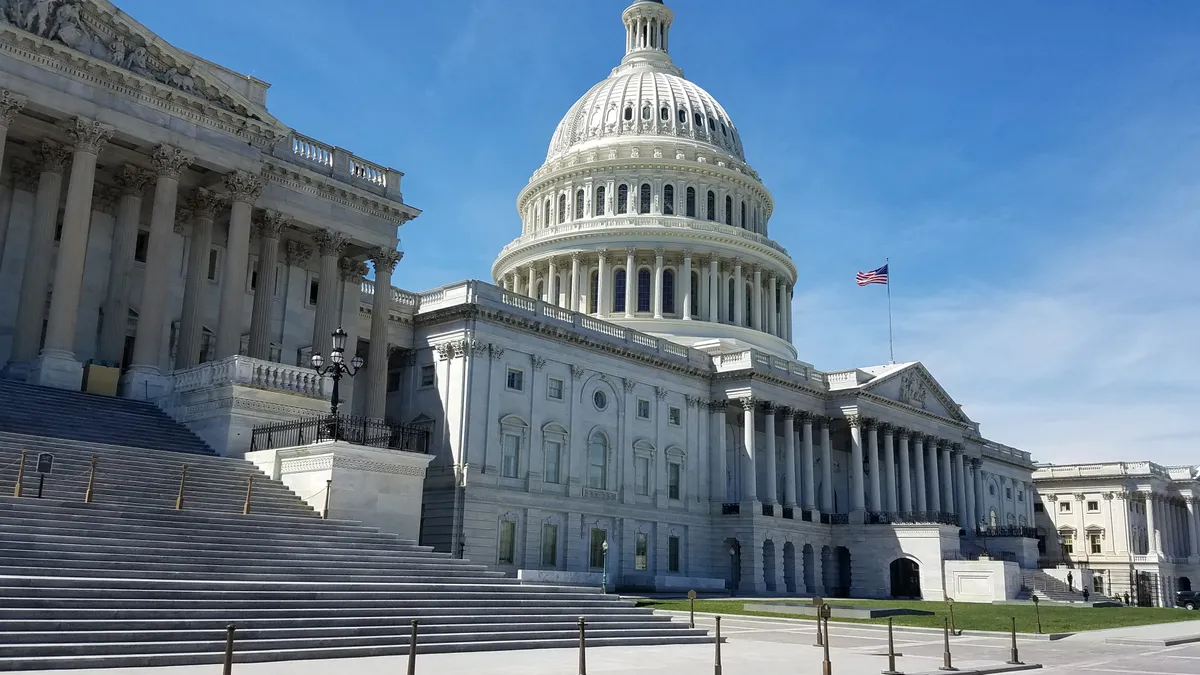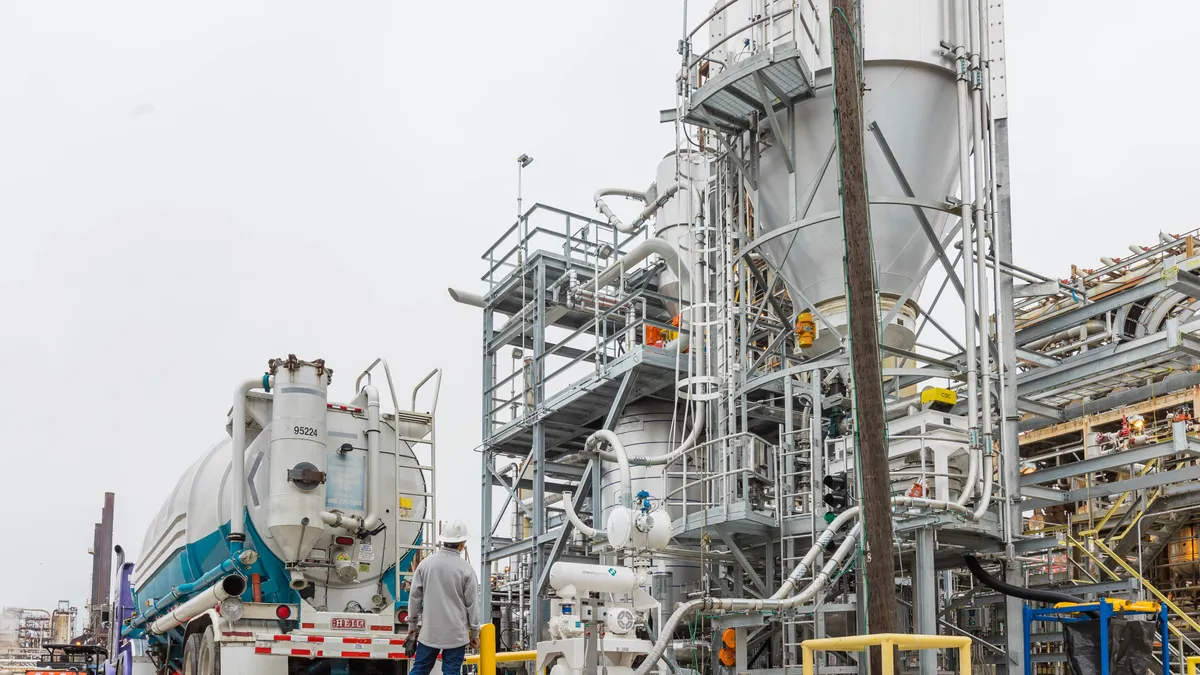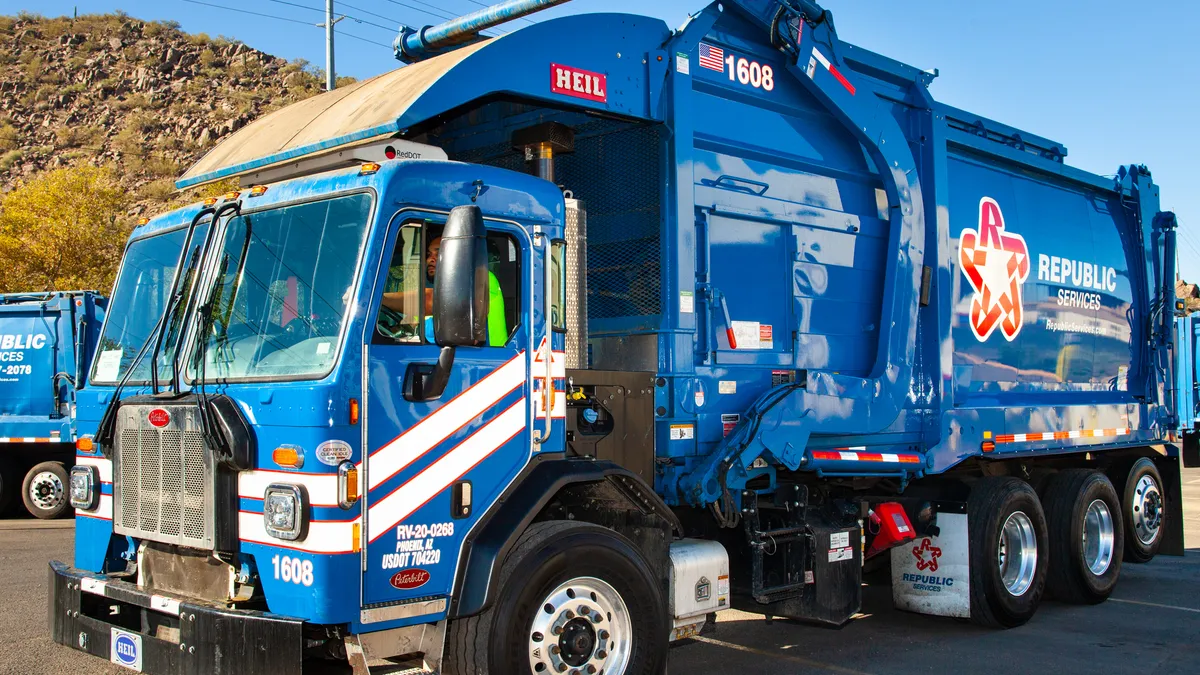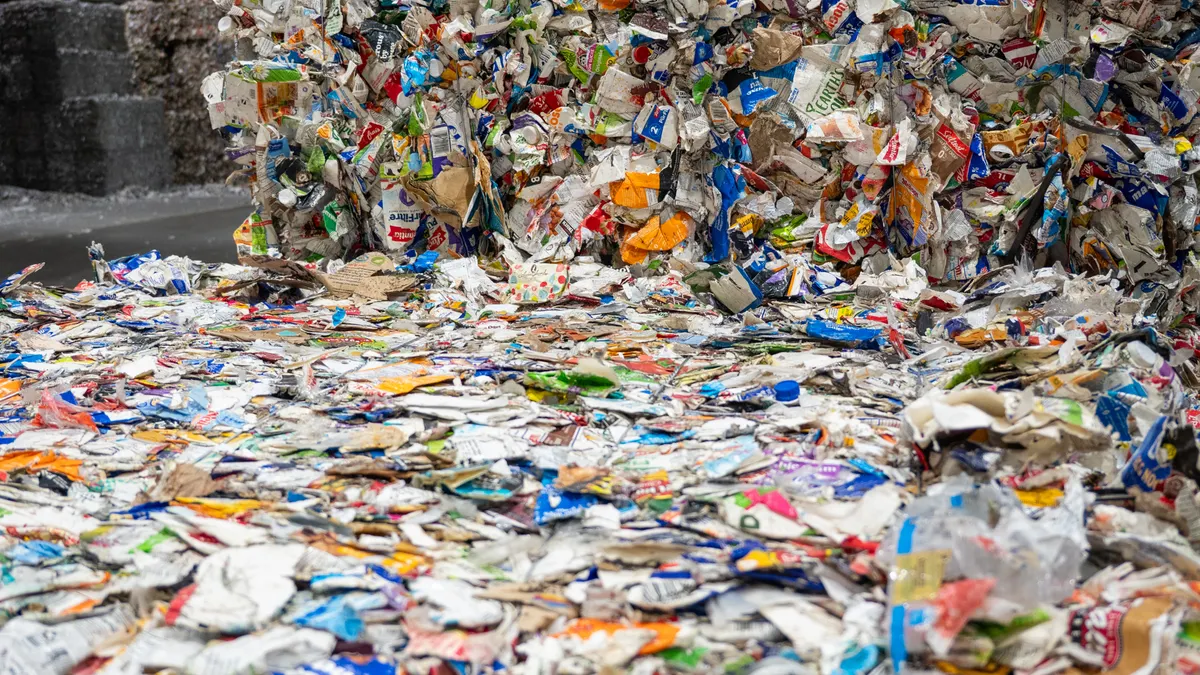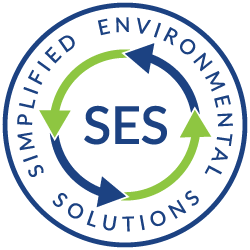California Gov. Gavin Newsom has signed a series of compost, biogas and recycling market bills into law.
Two new organics laws are meant to help increase composting capacity in the state and clarify that renewable natural gas produced from organic waste counts toward certain state organics diversion requirements. A new glass recycling law updates a state market development program meant to boost recycled glass use in wine bottle production.
SB 279: Expanding composting capacity
Newsom signed SB 279, a law that will expand composting capacity for certain farmers, growers and community composters. Some growers will now be able to compost large amounts of agricultural material on-site without needing to comply with regulations usually required for large-scale composting operations.
Growers will be able to have up to 500 cubic yards of feedstock and compost on site at any one time, and certain farms and growers can give away or sell up to 5,000 cubic yards of compost each year without raising the regulatory tier needed to carry out those composting activities.
The law also allows some community composters, urban farms and school farms to compost up to 200 cubic yards of green waste, and up to 500 cubic yards for publicly owned compost activities. These entities previously both had a 100-cubic-yard limit.
Bill supporters, including Californians Against Waste and the California Alliance for Community Composting, say the law gives growers and community composters more flexibility in a state that has a shortage of composting facilities. The law is also meant to make it easier to meet the state’s organics diversion goals set in SB 1383, which requires numerous jurisdictions in the state to curb the amount of organic waste that ends up in landfills.
The law also helps growers who, due to a separate state law, are no longer allowed to burn large amounts of agricultural byproducts, such as orchards or vineyards. Prior to SB 279’s passage, those growers had to send high volumes of materials to offsite composting facilities, which bill sponsors said are sometimes hundreds of miles away.
AB 70: Biogas’s role in organic waste diversion
California also enacted a law providing greater certainty on the role of biogas in the state's organic waste diversion requirements. AB 70 allows renewable natural gas produced from exclusively organic waste and injected into the grid to count toward diversion credits. Previously, the production of RNG could only count toward jurisdictions' organic waste diversion requirements if the gas was used on site.
AB 70 also creates a statutory definition for pyrolysis. Local governments are required to create waste diversion plans under existing law and cannot use pyrolysis for source reduction or recycling, but the technology had not previously been defined in California law.
The legislature's analysis of the bill noted California is behind in meeting its methane reduction targets set under SB 1383 and noted incorporating more technologies could help the state move closer to its goals. The bill was supported by companies like Anaergia and Sevana Bioenergy — which jointly manage the Rialto Bioenergy Facility — and groups like the Bioenergy Association of California and California Compost Coalition.
AB 899: Updating market payments for glass recycling
Newsom signed a bill meant to incentivize in-state wine manufacturers to use more recycled glass in their bottles by updating and extending the state’s market development payment program.
AB 899 increases the existing market development payment for recycled glass cullet from $50 per ton to $150 per ton. The law also extends the sunset for this payment program by two years, so it now sunsets on Jan. 1, 2030.
The development payment program first launched after lawmakers updated the state bottle bill in 2022 to include wine and distilled spirits. In order to incentivize recycling for the higher volumes of glass containers coming into the program from that expansion, the state authorized $60 million a year to fund these payments until 2028. Only glass beverage containers manufactured in California are eligible for such market development payments.
The Glass Packaging Institute, which pushed for AB 899, says the updated market development payment is necessary to help reduce the operational costs that California glass bottle manufacturers face and make them more competitive with foreign glass imports, which would help to retain jobs. GPI represents glass container manufacturers and suppliers, including four glass container factories in the state.
California-based bottle makers must follow stricter in-state recycled content requirements, pay higher energy and labor costs and follow more strict environmental compliance obligations compared to some of their international bottle making counterparts, GPI says.
“Unfairly subsidized imports, particularly from China, threaten local manufacturers, and recent tariffs on Chinese glass imports underscore the need for a resilient, sustainable supply chain,” added bill sponsor Assemblymember Rhodesia Ransom in a bill analysis.




